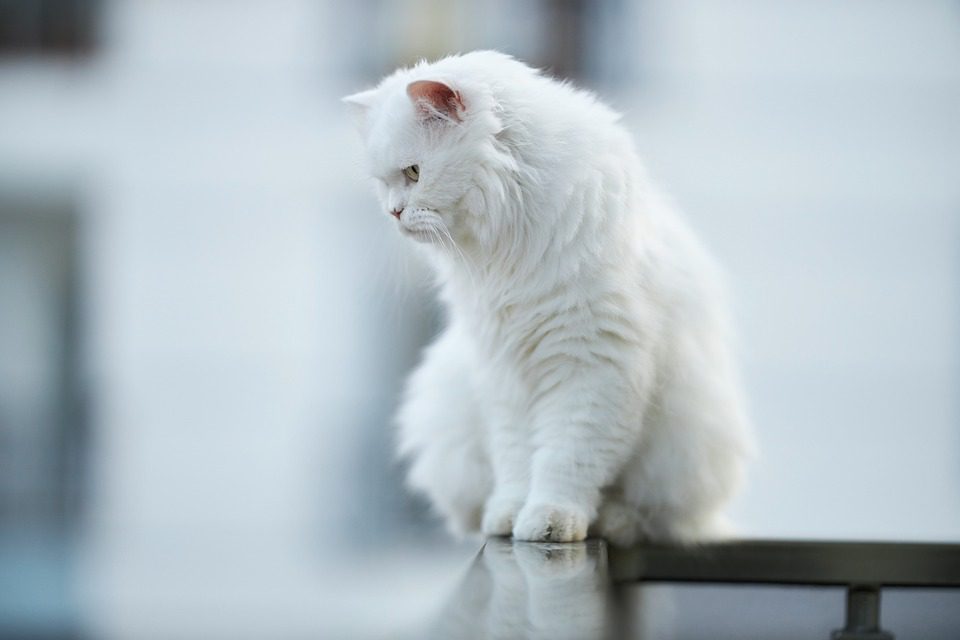Cats can experience anxiety, just like humans. It can be caused by various things like changes in environment, a new pet, loud noises, or even a change in routine. While medication may be necessary in some cases, there are many things you can do to calm your cat’s anxiety. From providing a safe and comfortable space for your cat, to engaging in interactive play, there are plenty of ways to help your stressed-out feline friend.
Introduction
Cats are incredibly sensitive and intuitive animals, and just like humans, they can experience anxiety. Anxiety can manifest in cats in a variety of ways, from vocalizing more than usual to avoiding people or other animals, so it’s important to understand the signs of anxiety and know how to calm a cat down when it is feeling anxious.
What Causes Cat Anxiety?
Environmental Factors
Table of Contents
Cats are creatures of habit and don’t do well with sudden changes in their environment. Moving, the arrival of a new pet, or even a change in the daily routine can all trigger anxiety in cats. Additionally, cats can become distressed if they feel that their territory is being threatened, such as when a new pet or person moves into the home.
Medical Conditions
Medical conditions can also cause anxiety in cats. Pain, an overactive thyroid, ear infections, and even dental disease can all cause cats to become anxious. If your cat is exhibiting signs of anxiety, it’s important to take them to the vet to rule out any underlying medical conditions.
Separation Anxiety
Separation anxiety is common in cats, especially if they are used to having the attention of their owners all the time. Cats can become anxious if their owners leave for a period of time, and may vocalize or hide in order to cope with the stress.
How to Calm a Cat’s Anxiety
Create a Safe Place
Creating a safe place for your cat is the first step in calming their anxiety. This could be a room or corner of the house where your cat can feel secure and away from any potential sources of stress. It should be a quiet, comfortable place with plenty of hiding spots and places to scratch.
Provide Comfort
In addition to providing a safe place, it’s important to make sure your cat is comfortable. This could include providing them with their favorite toys, blankets, or beds. It’s also important to make sure they have access to fresh water, food, and litter boxes.
Engage in Playtime
Engaging in playtime is a great way to reduce anxiety in cats. Playing with your cat can help to reduce stress and keep them mentally stimulated. Try using interactive toys like laser pointers or feather teasers to engage your cat in playtime.
Try Relaxation Techniques
Relaxation techniques can also be used to help calm an anxious cat. These include massage, brushing, and even talking softly to your cat. It’s important to be patient and allow your cat to take things at their own pace, as pushing them too hard can increase their anxiety.
Consider Medication or Supplements
If your cat’s anxiety is severe or not responding to other methods, you may want to consider medication or supplements. Talk to your vet to determine if this is the right option for your cat.
Keep Your Cat Stimulated
Finally, it’s important to keep your cat stimulated and engaged with their environment. This can include providing them with plenty of toys, scratching posts, and even climbing trees. Keeping them mentally and physically active can help to reduce stress and anxiety.
Common Myths About Calming Cat Anxiety
- Myth: Cats Don’t Experience Anxiety – Cats do experience anxiety, just like humans. It is important to observe your cat’s behavior and look for signs of stress and fear, such as hiding, excessive meowing, and restlessness.
- Myth: You Can’t Reduce Cat Anxiety – Anxiety in cats can be managed with patience and understanding. There are various treatments and remedies available, such as using calming pheromones, providing a safe space, and reducing environmental stressors.
- Myth: Cats Don’t Respond to Human Comfort – Cats do respond to human comfort and can be reassured by gentle petting and calming words. It is also important to provide a safe and comfortable environment for your cat.
- Myth: Cat Anxiety Can’t Be Prevented – Cat anxiety can be prevented by providing a safe and stress-free environment, introducing new items slowly, and providing positive reinforcement when your cat is calm.
Frequently Asked Questions
1. How can I help my cat with anxiety?
Answer: Helping your cat with anxiety can include providing them with a safe and secure environment, reducing stressors, providing them with mental and physical stimulation, and providing them with natural calming remedies. Additionally, speaking with a veterinarian to discuss any underlying medical issues or medications that may help your cat’s anxiety is also beneficial.
2. What are some natural remedies to soothe my cat’s anxiety?
Answer: Natural remedies to soothe your cat’s anxiety can include providing them with a pheromone diffuser, providing them with calming supplements, providing them with calming treats, providing them with relaxing music, and providing them with extra cuddles and love. Additionally, providing them with a comfortable, safe place to rest and hide can also help to reduce their anxiety.
Conclusion
Cats can become anxious due to environmental factors, medical conditions, and separation anxiety. To reduce their anxiety, provide them with a safe place, comfort, engage in playtime, relaxation techniques, medication/supplements, and keep them stimulated. It’s important to be patient and let the cat take things at their own pace to avoid increasing stress.






